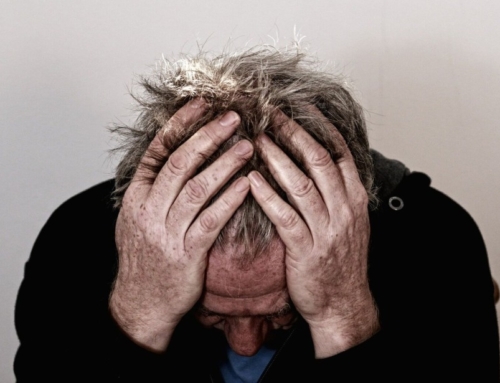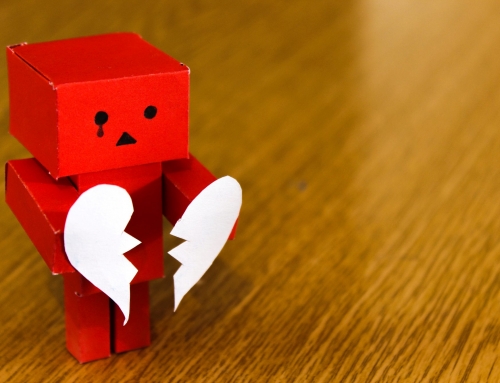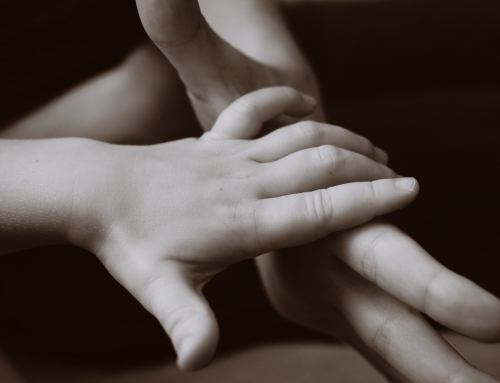 Losing a loved one may be one of the most painful and charged experiences of your lifetime. You may feel as though you were hurled into an unrecognizable world. Your normal life is nowhere to be found. The emptiness of loss feels assaulting.
Losing a loved one may be one of the most painful and charged experiences of your lifetime. You may feel as though you were hurled into an unrecognizable world. Your normal life is nowhere to be found. The emptiness of loss feels assaulting.
Some days the emotional and mental turmoil feels brutal and unbearable. You were not given a choice to receive grief; it came to you. You may wonder, Will I ever heal?
There are no quick fixes. There are no easy steps. But understanding the process of grieving and knowing how to deal with grief and pain can help you endure the twists and turns on the road of mourning.
13 Tips for How to Deal with Grief
1) Grief is Normal
Grief is not pathological, nor is it an enemy to resist. It is a natural and visceral reaction to death and significant loss. Grief is a sign of your humanity. It is the cost of loving someone and an indication of your emotional investment.
[bctt tweet=””Grief is a sign of your humanity.”” via=”no”]
Grieving may feel futile but it is, in fact, necessary and healthy. Grieving is the process of adjusting and coming to terms with a loss. Experiencing your heartache is an essential part of healing. However, just because grief is normal doesn’t mean it’s no less difficult.
[bctt tweet=””Experiencing your heartache is an essential part of healing.”” via=”no”]
2) Grief is Personal
Though grief is a universal experience, it is also an incredibly personal one. Everyone will feel and express their grief in their own unique way. Your grieving style may even be different from your family members who are mourning the same death.
 Intuitive grievers may need to cry or talk about their loss. Instrumental grievers may feel compelled to be more private, by channeling their energy through self-reflection and activity.
Intuitive grievers may need to cry or talk about their loss. Instrumental grievers may feel compelled to be more private, by channeling their energy through self-reflection and activity.
Remember to respect and honor your distinct journey. There is “no one size fits all” way to cope. There is no right or wrong way to feel or think about your loss. In the face of people’s expectations of you, resist feeling pressured to conform to others’ ideas of how you “should” or “have to” be.
[bctt tweet=””There’s no ‘one size fits all’ when it comes to processing grief.”” via=”no”]
3) Grief is Hard Work
The bereavement community uses the term “grief work” for a reason. The high degree of exhaustion catches people by surprise. Grieving taxes your entire system and expends a substantial amount of emotional, mental, and physical energy. It can deplete you to the point where the simplest task becomes monumental and what was once manageable now feels impossible.
The bereaved often describe feeling weak and broken because they are not functioning at their best. When you feel frustrated with your performance, kindly remind yourself that your entire being is working overtime to climb a mountain of grief.
It’s okay to not to be okay. To expect yourself to operate in the same mode as you did before the loss is unreasonable. Give yourself permission “to not have it all together.”
[bctt tweet=”It’s okay to not be okay.” via=”no”]
4) Confront Your Pain
No one likes to feel pain. Society treats grief like an inconvenience. The bereaved are instructed to “keep busy,” “be strong,” “move on,” and “get over it.” These cultural messages rush people to shove their grief in the corner and avoid it.
 However, ignoring grief when it knocks at your door, will compound the emotional injury. No matter how much you push the pain down, it will find a way to leak out. Unprocessed emotional turmoil takes a significant toll and will leak out via anger, insomnia, depression, gastrointestinal issues, and anxiety.
However, ignoring grief when it knocks at your door, will compound the emotional injury. No matter how much you push the pain down, it will find a way to leak out. Unprocessed emotional turmoil takes a significant toll and will leak out via anger, insomnia, depression, gastrointestinal issues, and anxiety.
Attempts to escape or numb yourself with alcohol or drugs will only worsen and postpone the healing process. You cannot outsmart grief. It will follow you until you acknowledge it. The only way out of grief is through it. We must courageously face our sorrow head on and do the work of grief.
[bctt tweet=”The only way out of grief is through it.” via=”no”]
5) Let Yourself Grieve
Grief can bring a tidal wave of reminders, unpleasant thoughts, bodily sensations, and traumatic memories. Of course, you would want to block this discomfort from of your consciousness. However, grief wounds need to be experienced, not suppressed, to heal.
Grief work demands more than “just give it time.” It is an active process by which we choose to deal with pain rather than resist it. Intentionally carve out time and space to mourn. The purpose is to allow yourself to digest, feel, and express the pain of loss.
There are numerous ways to open yourself up to encounter grief:
- reflect on a walk
- look at photos
- create a scrapbook
- write down memories
- talk to a therapist
- journal
- write a letter to communicate what was never verbalized
- listen to music
- cry
- write poetry
- paint
- sort through possessions of deceased
- visit the gravesite
- share your story with a friend
Many people are afraid that once they open that door, they will drown in a sea of sadness. Know that each time you chose to swim, you strengthen your capacity to tolerate the intensity of your grief.
6) Prioritize Self-Care
Give yourself a break. Grief leaves you empty. It constantly withdraws energy from your reserves. To manage these demands, set aside time to replenish. You may need extra amounts of your usual self-care routine to stay healthy. Consider what feels soothing to you. Connect to your body, soul, and spirit.
How do you need to refill your cup today?
Here are a few suggestions of self-nurturing activities:
- rest in a hot bath
- receive prayer
- enjoy a massage
- exercise
- dance
- take a vacation
- attend a concert
- nap
- learn something new
- practice deep breathing
- hike
- watch a movie
- eat at a favorite restaurant
- drink coffee with a friend
The main point is to be kind to your whole being and connect with what you love. You honestly might not have the motivation to treat yourself well, but force yourself to do so. Small routine pleasures can make a big therapeutic impact.
7) Grief Takes Time
There is no specific timeline to predict when grief will end. There are no universal stages to complete as once thought. Grief is not a linear journey but more of a cyclical one.
Recovery is a highly individualistic experience as every griever and loss is unique. Healing is best described as gradual. It cannot be forced or rushed. Grief can often last longer than expected. You simply cannot digest the magnitude of a loss all at once.
Avoid putting unrealistic time demands upon yourself to “just get over it.” Don’t judge or criticize yourself for not coping as well or healing as quickly as you think you “should.” Allow the process to unfold naturally. Be patient with yourself as grief is unapologetically messy and raw. It relentlessly competes for your time and attention.
8) Grief Goes Through Seasons
Grief changes. Your grief will not always look and feel the same. Typically, early grief is acute and recurrent. For some people, grief eventually levels off and the episodes become shorter and less intense. Others may ramp up after the initial numbness and shock wears off.
 Grief ebbs and flows. You will have good days and bad days. Sometimes it feels like the darkness of night will last forever. You feel trapped in the depths of the despair with gut-wrenching pain. These days feel unforgivingly harsh and cold.
Grief ebbs and flows. You will have good days and bad days. Sometimes it feels like the darkness of night will last forever. You feel trapped in the depths of the despair with gut-wrenching pain. These days feel unforgivingly harsh and cold.
Sometimes grief feels like you are lost in a heavy fog. You feel confused and alone. There also may be stretches of reprieve. During these periods, grief may feel like a warm summer rain where you fondly remember happy memories. As your grief fluctuates, be present to and accept the current season.
9) Grief Resurfaces
Grief can be unpredictable and disruptive. It is quite common for people to feel they are “done” grieving and then get ambushed by intense waves of emotion. You might feel as though every step forward means two steps backward.
Be mindful that grief can return. Life milestones without the deceased may be particularly difficult, such as births, graduations, and weddings. Also, significant dates like holidays, birthdays, and anniversaries can trigger a flood of grief reactions. Even sights, sounds, tastes, and fragrances can cause eruptions. The sudden resurgence of grief can be disconcerting especially after a phase of relief.
Know your response is not necessarily a setback. As best you can, predict dates or locations that might trigger your grief and then prepare a coping strategy. To endure the harder days, consider increasing social support, start a new tradition or ritual, plan a distraction, or set aside a sacred space to mourn.
10) Grief Needs Honesty
To deal with the finality of death, a lot of people want to remember their loved one in a fictitious way. It is common for the bereaved to reinvent their relationship with the deceased, by making their experiences with that person sound either better or worse than they truly were.
Some people idolize the deceased and dissociate from any disturbing memories. Others cope by exaggerating their misery to gain sympathy and attention. Altering the truth will derail your recovery process and cause emotional stuckness.
Be candid with yourself regarding the type of relationship you had with the person. Grieve the whole person, remembering both the good and the bad. Face any unfinished business. Allow yourself to grapple with disillusionments like your mother never said she was proud of you or your father was a raging alcoholic.
11) Grief is about Attachment
Grief and attachment are intimately related. The nature of your attachment and role that person played in your life will define your grief. To understand your grief reactions, consider the type of connection you had with that person.
Who was this person to you? What did this relationship bring to your life? What will you miss? How are you impacted by this death? Understanding the personal significance of the loss will help provide clarity amid feeling disoriented. You might even be grieving the fact that you never had a real relationship with the deceased or perhaps the connection was strained or volatile.
12) Accept Grief’s Feelings
Loss can create a lot of mixed emotions. Perhaps you may feel both relieved and angry because the person who died was also your abuser. Many bereaved feel guilty for their negative feelings. Adding insult to injury, many family and friends feel the need to fix grievers by offering copious amounts of unsolicited advice.
Typically, the undertone of said opinions is “you shouldn’t feel that way.” “Don’t feel sad because she is heaven. Don’t feel angry because he did the best he could. You need to cry more.” This advice is extremely unhelpful. No one would think to tell someone to stop feeling pain when their leg is gushing blood.
This logic is insensitive and absurd. Emotional pain should be given the same regard as physical. There is no right or wrong way to feel. Don’t judge yourself for having feelings that “seem incorrect.” Make friends with authenticity. You have a right to hurt, grieve the person’s absence, and feel the way that you do.
13) Grief is an Emotional Rollercoaster
Grief is filled with emotional ups and downs. You might feel like you are going crazy or stuck in a bad dream. The emotional fluctuations are often sudden, unpredictable, and intense. Just like a roller coaster, it might feel scary and too much all at once.
There are sharp turns, and unexpected highs and lows. As much as you want to get off the ride, you must stay strapped in. Know that it’s normal to experience a wide range of emotions such as confusion, shock, depression, anxiety, denial, anger, sadness, guilt, fear, relief, and disbelief.
Conclusion
Undeniably, loss is a difficult pill to swallow. Do your best to work towards accepting the grief journey instead of fighting against it. Commit to honoring and caring for yourself amid the pain. Lastly, know it’s okay to reach out for help.
Photos
“Alone,” courtesy of Konstantine Tilberg, Flickr Creative Commons, CC0 License; “Girl with Copper Hair,” courtesy of tintenfieber, pixabay.com, CC0 Public Domain License; “Journal Entry,” courtesy of Ray Dumas, Flickr CreativeCommons (CC BY-SA 2.0); “Hope,” courtesy of Sandeep Pawar, Flickr CreativeCommons (CC BY 2.0)









